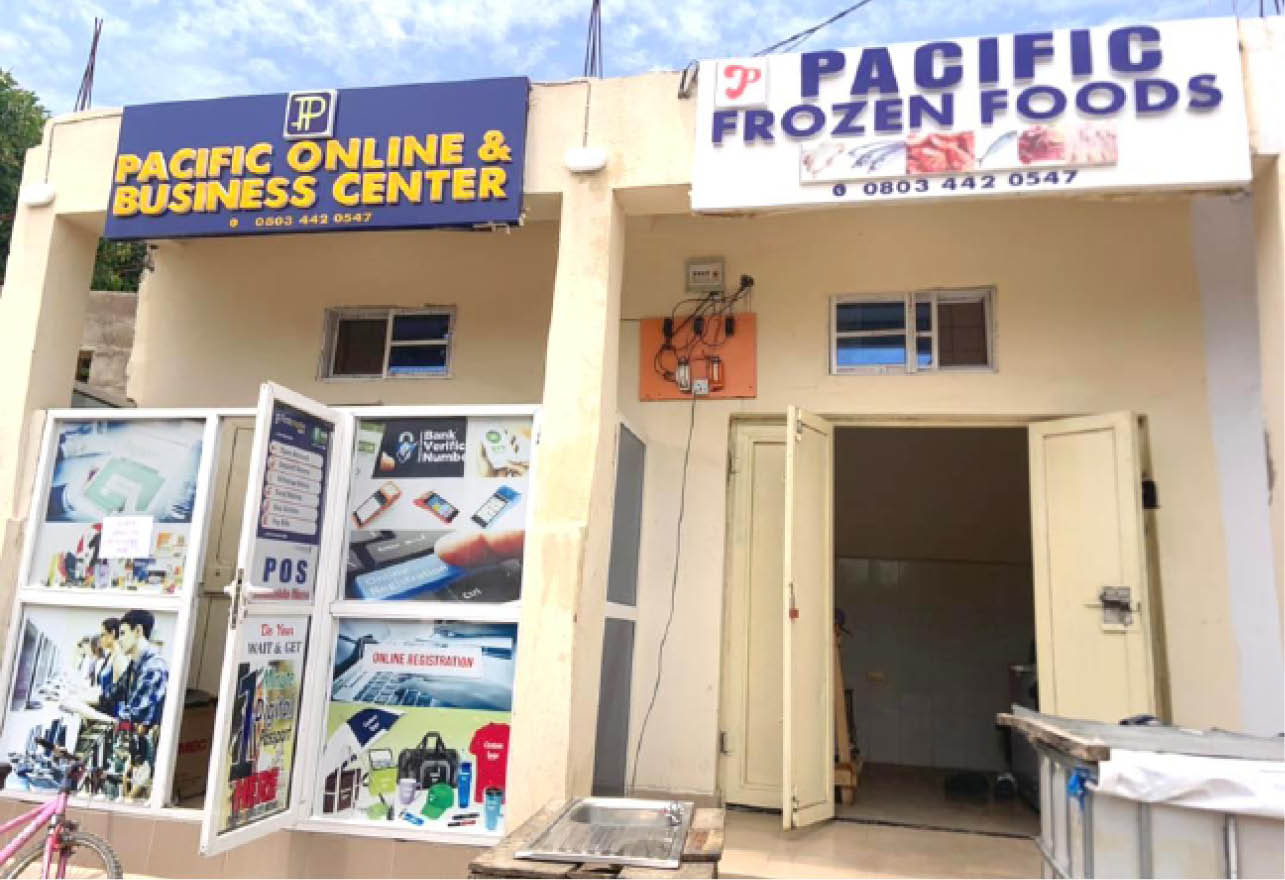There is a rise in complaints from users of Point of Sale (POS), the Automated Teller Machine (ATM) and other e-banking platforms over multiple charges. This is just as the banks are turning to these platforms for survival.
According to financial reports, seven of the over 20 commercial banks earned N60billion within a space of six months this year as charges from fees and commissions from apps usage, ATM, USSD channels, internet banking, POS terminals and agency banking.
- Signpost of the mill indicating the name of the last leasee
- 2023: CSOs divided over e-voting, e-transmission of results
The seven banks are First Bank, Ecobank, Sterling Bank, FCMB, Union Bank, Unity Bank and Wema Bank.
Their unaudited financial statements indicated that the amount is 13.9 per cent or N7.3bn increase, more than what they generated from the e-banking platform (N52.7bn) in the first half of 2020.
First Bank topped with the biggest earning of N28.8bn after it had earned N27.7bn in the first half of 2020. Ecobank was next with N14.5bn revenue, while Sterling Bank grossed N3.6bn. The FCMB recorded N6.7bn, Union Bank got N3.5bn share of the N60bn electronic banking revenue, while Unity Bank got N1.5bn. Wema Bank was the lowest, with N1.2bn earning.
Some e-banking platform users who spoke to our reporter said they are saddened by the increasing multiple bank charges without any sign that the situation would improve.

POS licences, operators on the rise – Data
The number of agency banking and POS operators has kept rising since 2017, data have shown, bringing to the fore the gains being accrued to those behind the initiatives.
According to the 2019 National Financial Inclusion Strategy (NFIS) document released by the Central Bank of Nigeria (CBN), banking agents rose from 38,416 in December 2018 to 236,940 as of December 2019.
It had earlier risen by over three folds to surpass 38,000 agents between 2017 and 2018. The agent banking campaign has led to phenomenal adoption in recent years.
The number of agents rose from 11,104 or 10.7 agents per 1,000 adult Nigerians in 2017 to 38,416 (38.6 agents per 1,000 adults) in 2018. In 2019, the figure jumped further to 236,940 (228.8 agents per 1,000 adults).
There were 236,940 unique agents spread across the 774 local government areas in Nigeria as of December 2019. This was higher than the number of agents in 2018 at 83,560 (excluding 38,416 agents not under Shared Agent Network Expansion Facilities (SANEF) supervision).
A lucrative business for all banks
Studying the lucrative nature of POS and agency banking, the records show that almost all the commercial banks have invested in agency banking platforms.
As of April 2021, First Bank said it had driven the financial inclusion initiative much more vigorously than any other bank in Nigeria, with its Firstmonie agent channel crossing the 100,000 mark.
Access Bank Plc penultimate week also disclosed that it had successfully commissioned 74,000 Access Closa agents to provide financial services to customers across Nigeria.
As of May 2021, the head of the agency banking unit of Ecobank Nigeria, Olanike Kolawole, said Xpress Point agent of the bank paraded 30,000 agent locations across the country. Similarly, Wema Bank has over 300 agents across the six geopolitical zones.
Burdens overshadow gains
In Kano, a cross-section of users said they often patronise Firstmonie POS agents who charge withdrawal of between N1,000 and N10,000 at N100, which is automatically deducted by the bank from the customer’s account.
They added that the agent fee, however, depends on the agent but the average charge is N100 for up to N10,000 withdrawal and N200 or N300 from N11,000 and above.
They said Moniepoint, another POS platform, charges customers N200 for deposits of any amount and withdrawal, as well as N100 for any amount.
Ahmad Aliyu, a POS user, said it’s better to move around or enter the market without cash and use the POS when making transactions or purchases because it is easier, safer and comfortable.
Another user, Yusuf Bala, said that at the end of every month, he finds it better to use the POS because the network of the ATM is not guaranteed and there is always a long queue at the cashpoints.
Both users, however, lamented the high rate being charged by banks like SMS alerts while customers are charged for each transaction, apart from what is paid to POS agents.
In Abuja, a sales attendant, Blessing Emmanuel, said N200 is charged for a withdrawal of N10,000 while N100 is charged when a customer wants to deposit.
Amina Ibrahim told one of our correspondents that she pays N150 or N200 to withdraw cash at a POS point, depending on the location. She said that after the money was paid to the POS agent and charges for SMS alerts monthly, she has no idea if other charges are made from the banks. However, she noted that if other charges are accrued, it would be little to make any difference on her account.
A POS operator in Gudu, Stella Ugonna, said she charges N100 for deposits and withdrawals below N5,000 and N200 for transactions from N5,000 to N10,000.
She said an additional N100 is charged for every additional N5,000 transaction while First Bank pays her N50 commission for each transaction.
A POS user at Stella Ugonna’s point, Maxwell Idowu, said apart from the money he pays at the point of withdrawal, he is not sure of how much the bank charges him as it is hidden.
He said he normally gets alerts at the end of the month indicating different deductions for services. He, however, said using the POS is more convenient than using the ATM, which also attracts charges.
He said the POS also helps him to avoid the long queues in the banks and the associated time wasted in the process.
In some parts of Lagos, POS operators’ charges vary, depending on locations. In some places, it is N200 per N10,000 while others charge N300 for the same amount. It was learnt that the charge is more in highbrow areas like parts of Ikeja GRA, Magodo and some areas in Ojodu.
A POS operator at Ojodu Berger, Mr Happy Oyarekhua, said he charges N200 for N10, 000.
“What we charge is N30 per N1,000 withdrawal, but once it is N10,000, we collect N200,” he said.

A user who identified himself as Mr Fidelis told our correspondent that POS charges are better than ATM’s. He said a user might pay an additional charge if he has to transfer to the POS operator. “In this case, you pay the charge, depending on how much you want to withdraw. And you will pay the SMS and transfer charge from your bank,” he said.
Precious Momodu, a student who operates POS at Iyana School said she charges 300 on every N10,000 and N200 on every N5,000 withdrawn. She explained that she can charge higher because there are no banks in the location where she operates. To access a bank, people around there must get to either Alaba International, Igando or Egbeda.
Precious uses OPay, Keystone and Access banks’ POS. She says Access and Keystone Banks do not allow transfers on their POS business, but OPay does and charges her N10.75 for transfers to any bank, while she charges her customers the same amount for withdrawal.
She says the bank gives her 0.70 per cent of the transaction fee on POS as commission. She further disclosed that she gets between N30,000 and N40,000 as profit every month, depending on the period.
Another POS operator at the Cement area, Mrs Rasheedat Abdulmalik, uses the OPay POS.
In her area, she charges N100 per N10,000 withdrawn. She also says she gets N18 commission immediately after a transaction.
CBN should reviews charges
A POS user, Mr Kabir Ibrahim, commended the CBN for introducing agency banking, saying it has drastically helped to reduce the long queues experienced in banks in the past.
For every N10,000 he withdraws via POS, he pays N200. He, however, cried out that sometimes, after he has been charged N200 by the POS operator, the bank would also charge him N100.
Also, for phone transfers at POS points, the operator charges him according to the amount involved, while the bank charges him between N20 to N35 for the same transfer on his phone. This, he said, is unacceptable.
Mrs Ayo Oladimeji, a resident of Lagos said, “I started patronising POS agents recently. For N5,000, they will collect N100 and for N10,000, they deduct N200 directly or I give them after the withdrawal. If my calculations are right, I must have spent up to N4,000 or more on POS deductions as I need cash most of the time.
“If someone looks at the stress of going to the bank and not having money to withdraw, poor network or long queue, someone will prefer to use the POS. But if someone calculates the money these people are making from it, honestly, I won’t use it except to collect small cash. I am fed up with using POS due to the charges,” she said.
Zulaihat Surajudden, who owns a POS kiosk around the Mogadishu area of Kaduna city said she gets a commission of N70 for every POS transaction while her bank makes N30 from the N100 charged from customers for all transactions between N1,000 and N10,000.
She says the sharing formula used to be 50/50 between her and the bank, but recently, the agreement was reviewed, giving her N70 and N30 for the bank. “Other banks could take N40,” she said.
Another POS operator, Yususf Shanono in Kaduna says, “N100,000 is a good capital to start POS business. Initially, the commission was shared 50/50 with the POS company, but companies like OPay will take N10 when a transaction of less than N10,000 is carried out, while the operator makes N90. The bank commissions are paid at the end of the month.”
Muhammad Tahir, who recently opened a POS shop also in Kaduna, said he had to engage two attendants to help him run the business. Tahir who uses OPay terminal says he gets N90 for every transaction of N10,000 and below.
In Kaduna, Malam Sani Banta, who resides in the Mogadishu area, says he finds the use of POS helpful as he often spends as much as six months without stepping into a banking hall.
Munkaila Aliyu, a trader at the Bakin Dogo market finds the use of POS easier. For him, N100 charged by operators for any withdrawal between N1,000 and N10,000 is a small price to pay as they are more accessible than bank ATMs.
For Bashir Yusuf Dankwai, apart from the N100 charged by POS operators, he is uncertain if there are other charges from the bank on his account, apart from the regular SMS charges.
Charges due to high cost of agents’ services – Banks
Although the CBN, in the guidelines issued for agent banking – Regulatory Framework for Licensing Super Agents in Nigeria 2015 – regulated charges for various agent services, the experience at agent locations is that customers are frequently charged higher, sometimes more than the regulated price.
According to a recent survey by Enhancing Financial Innovation and Access (EFInA), 45.1 per cent of the agents surveyed set the prices they charged customers.
The report noted that this may be due to the various costs involved in running agent businesses, which may not cover agent’s overhead costs, as well as unscrupulous behaviours by agents to earn more money.
Two first generation bank spokespersons who did not want their names mentioned, said the banks did not deduct arbitrarily as the fees had been standardised by the CBN. They argued that the differential charges were mostly introduced by individual agents who take advantage of their locations to charge more.
Sunday M. Ogwu, Christiana T. Alabi, Abdullateef Aliyu, Risikat Ramoni (Lagos), Francis Arinze Iloani, Faruk Shuaibu (Abuja), Ibrahim Suwaid, Hajara M. Bashir (Kano) & Abdulkadir Shehu (Kaduna)




